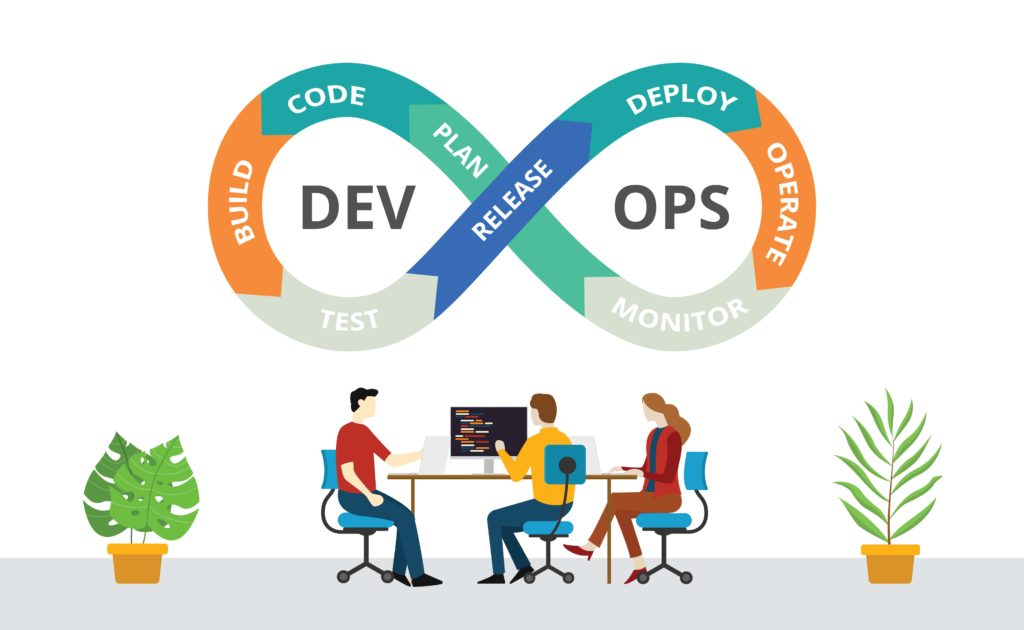 DevOps software engineers must master several essential skills to advance their careers. In fact, companies require strong leadership to facilitate the combination of software development, deployment, testing, and ongoing operations. Additionally, DevOps environments require particular skills to eliminate silos, maintain development best practices, and ensure business outcomes for each release. As an aspiring DevOps engineer, master these skills to shorten development time, optimize resource usage, and strengthen your team relationships. In this post, we will discuss several must-have skills for DevOps software engineers to master.
DevOps software engineers must master several essential skills to advance their careers. In fact, companies require strong leadership to facilitate the combination of software development, deployment, testing, and ongoing operations. Additionally, DevOps environments require particular skills to eliminate silos, maintain development best practices, and ensure business outcomes for each release. As an aspiring DevOps engineer, master these skills to shorten development time, optimize resource usage, and strengthen your team relationships. In this post, we will discuss several must-have skills for DevOps software engineers to master.
Communication Skills
Communication and collaboration skills are must-haves for any DevOps engineer. When combining multiple teams, communication skills have a significant impact on the success of DevOps transitions. Additionally, advanced communication skills build intra-team connections, which is known to relieve bottlenecks. Of course, teams that communicate well improve their development efficiency while reducing errors. As well as verbal capabilities, you will need written communication skills to maintain documentation. For example, you may be asked to prepare README files detailing the state of current projects. This way, you can help keep everyone on the same page. Using your collaborative skills, both new and old team members can be brought up to speed quickly. If you struggle in these skills, check out the best ways to improve English communication skills. Surely, your communication skills are essential to work as a DevOps engineer.
Infrastructural Skills
Additionally, infrastructural skills are critical for software engineers to master DevOps. These skills provide a deeper understanding of various infrastructure components, such as data-center and cloud-based servers. Naturally, this includes complex elements such as virtual network configurations and various software dependencies. Of course, you can leverage this deeper understanding for faster identification of bugs, shorter development cycles, and accelerated releases. Moreover, advanced cloud infrastructure expertise allows you to backup your code, applications, and other data. This way, you can leverage cloud server replication to restore application after service outages, security breaches, or other data emergencies immediately. Absolutely, mastery of infrastructural skills is crucial for full-stack DevOps engineers.
DevSecOps
Moreover, the most advanced DevOps engineers have mastered DevSecOps. Since traditional security processes often cause delays, DevSecOps skills are necessary to build security directly into your software development cycle. Notably, DevSecOps expertise provides plenty of valuable development and security insights. Some of these insights include software visibility, testing feedback, and identification of known security threats. To develop your DevSecOps skills further, take a course on DevSecOps fundamentals. In these courses, you can learn to create security policies, assign licenses, and scan artifacts for compliance issues. Certainly, DevSecOps is a must-have skill for maintaining your organization’s security.
Continuous Integration/Continuous Delivery
Furthermore, DevOps engineers must master CI/CD processes to stay competitive and successful. These skills allow you to make several incremental builds using automation, then deliver them in a rapid manner. Understanding CI/CD processes, you can commit and merge code frequently. This leads to increased code consistency, testing accuracy and updated releases. Of course, with continuous deployment proficiency, you can fully automate application configurations and releases. This way, you reduce errors and manage configurations across multiple releases. Additionally, the automation packages code into containers for increased portability, accelerated provisioning processes, and deployments without technical issues. Definitely, master these continuous integration and delivery skills to improve the speed and quality of your software releases.
Linux Fundamentals
Meanwhile, most DevOps software engineers master Linux fundamentals. Since most leading development companies host on Linux, skills with the operating system are essential for DevSecOps. In fact, several of the most popular configuration management tools, such as Puppet and Ansible, have Linux-based master nodes. Similarly, Linux is the base of many testing tools, optimizing testing processes in-house. Moreover, the operating environment features expansive customization functionality. Using your skills, you can configure Linux for your unique development, testing, and release methodologies. Of course, advanced Linux skills and fundamentals are critical to DevOps mastery.
There is a myriad of must-have skills for a DevOps engineer to master. When properly employed, these advanced skills help you boost job prospects, maximize your earning potential, and enhance your programming capabilities. For example, communication skills are essential to work as a DevOps engineer. Principally, you will need both verbal and nonverbal communication skills. After all, DevOps is heavily focused on teamwork, collaboration, and communication. Absolutely, mastery of infrastructural skills is crucial for full-stack DevOps engineers. Third, DevSecOps is a must-have skill for maintaining your organization’s security. Of course, cybersecurity is a rapidly growing priority for modern DevOps software development teams. Next, master CI/CD skills to improve the speed and quality of your software releases. Finally, advanced Linux skills and fundamentals are critical to DevOps mastery. Of course, mastering these five skills advances your career as a DevOps software engineer.







